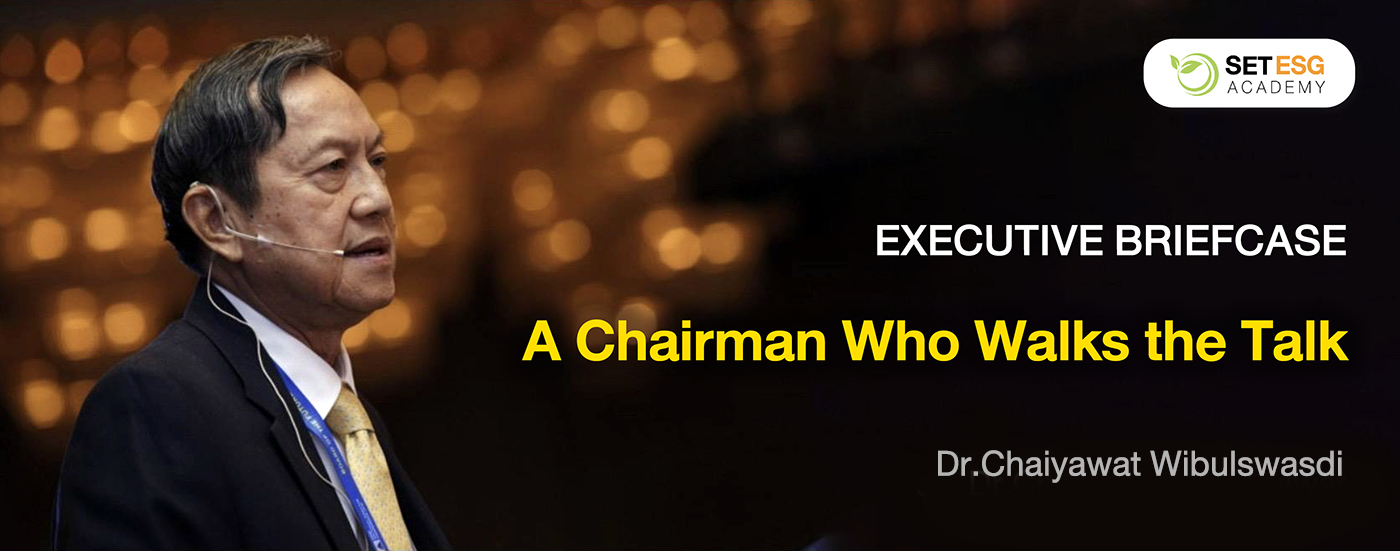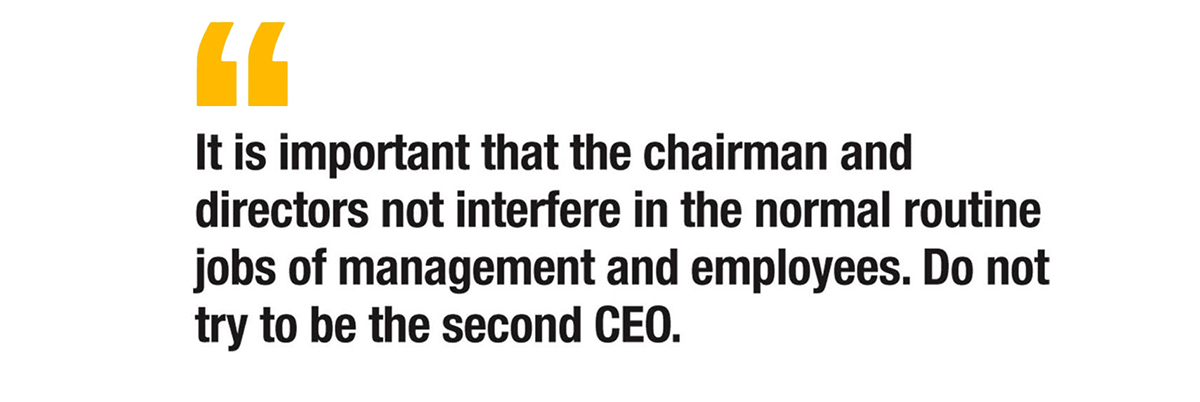Topic
EXECUTIVE BRIEFCASE "Dr.Chaiyawat Wibulswasdi"

Over a long career in corporate and public service, Dr.Chaiyawat Wibulswasdi has never been known to stay in an ivory tower.
“In order to effectively drive an organisation, three critical principles should be properly managed: a challenging strategy, effective execution and strong managerial capabilities," says Dr. Chaiyawat Wibulswasdi, a former Chairman of the Board of the Stock Exchange of Thailand.
With five years of leading the SET board and six years as Executive Chairman at Krungthai Bank (KTB), Dr. Chaiyawat certainly has direct experience of how to run a Board and also managerial functions. His Directorships at various organisations and also his time as a Governor at the Bank of Thailand and a Finance Minister in the 1990s provide him with a unique and broad perspective regarding the management of successful organisations.
"Upon taking the Executive Chairman position at KTB, I decided to improve internal working processes first," he recalls. "In doing so, I adopted corporate governance practices such as honesty, transparency, disclosure and righteousness while engaging with executives and employees to embrace these practices.
"Walking the talk is a practical approach to engage and encourage people to work synergistically. I and some directors, who also shared the same views, went to talk to each department and asked KTB personnel to apply these governance practices, which proved to be successful."
TOP-DOWN AND BOTTOM-UP
In order to formulate an effective strategy, Dr. Chaiyawat always uses a top-down and bottom-up approach.
"There should be two meetings," he explains. "In the first one, the Chairman and Directors should express their views regarding long-term strategy because they come from a policy perspective and are mainly concerned about the right corporate direction.
'The second or bottom-up meeting is where management comes back to propose to the Board a strategic action plan from an organizational strategic framework, on top of existing responsibilities and routine action plans.
"The key idea behind this top-down and bottom-up approach is to allow effective and productive participation between management and the Board. On the other hand, the varied backgrounds and knowledge of directors can be of direct benefit to a particular organisation."
Dr. Chaiyawat also emphasises execution of corporate strategy by following up assignments and asking management to report on a regular basis. "A mid-year review is important. It is the time when management should consider if there has been any major change in the environment or business conditions. Do we have to adjust our plan?
"I usually find practical ways to work effectively with the CEO, management and employees. It is important that the Chairman and Directors not interfere in the normal routine jobs of management and employees. Do not try to be the second CEO.
"As the Chairman of the Board, I consider three critical functions which are guiding, supervising and supporting," he says. "Within this framework, the Chairman can perform smoothly and productively with no duplication of work with the CEO and management."

In addition to the above roles, the Chairman should stand by to help if management requests. "However, if I believe that, on a critical issue, management may be heading in the wrong direction, I may ask to talk with the CEO and management about that particular issue in order to express my concern. In any case, the CEO and management may want to make their own choices, and I usually respect their decisions."
FOCUS ON THE AGENDA
He believes that a Chairman should work together with management to formulate the strategy (top-down approach). Then, the Chairman should dedicate his time to the board meeting which starts with identifying the agenda.
Besides reviewing the agenda proposed by management, Dr. Chaiyawat prefers to set a strategic and policy agenda for the whole year as well. This may involve his own new initiatives and new projects on which he, the Directors and management may share opinions.
Second, listening closely to explanations about how the strategic plan will be implemented is essential in order to assess whether the plan is workable. Third, encouraging others' opinions during a Board meeting is crucial. Last but not least is reaching a conclusion on the next move with practical solutions as to what, when and how to provide the most benefit to the organisation.
Coordinating matters outside Board meetings is also important. "I normally find time to talk with the Chairmen of sub-committees to find out whether there is smooth coordination with the management and CEO," says Dr. Chaiyawat. "Sometimes, I also help by talking with the CEO because I am closer to the CEO than to other directors.
“Management should have an HR committee chaired by the CEO," he continues. "However, five human capital subjects should be raised and agreed by the board's nomination and remuneration committee. These are organisational structural change, CEO evaluation, CEO and C-class executive selection, succession planning, and salary and year-end bonuses."
An economist by training, Dr. Chaiyawat obtained his bachelor's degree under a BoT scholarship and then continued his education, ultimately obtaining a PhD from Massachusetts Institute of Technology.
With his candid style, Dr. Chaiyawat is not considered a Chairman who stays high in his ivory tower and whom people cannot touch. He walks the talk, is interested in liberal arts and also enjoys writing in his free time.
Besides his "serious" work -- as a Chairman, Finance Minister, a central bank Governor and other high-profile positions -- Dr. Chaiyawat has a lighter side. He is a writer whose pen name "Winnie the Pooh" (วินนี่ เดอะ ปุ๊) has been well-known among Thai readers since the 1990s. He also used to be a board member of the Writers Association of Thailand and also sat on the judging panel of the SEA Write Awards.
"'I would like to give credit for my interest and collective knowledge in liberal arts to my bachelor's degree study at Williams College (in Massachusetts) where I was required to take a number of liberal arts courses on top of my major subject studies. It was an outstanding experience indeed," he says.
Credit : Bangkok Post Business
